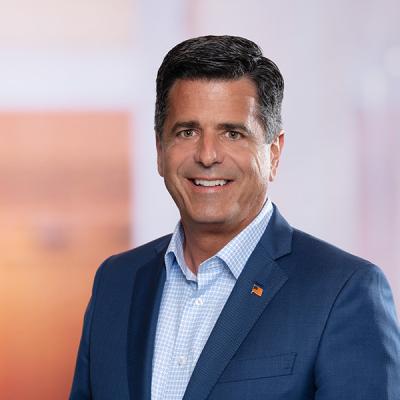Governor Baker Files FY2017 Budget, Economic Development Bill; Speaker DeLeo Outlines Agenda
With Beacon Hill off and running in the new year, Governor Charlie Baker and House Speaker Robert DeLeo this week unveiled key parts of their policy agendas for 2016. As part of his second budget proposal since assuming office, Baker on Wednesday proposed targeted investments in local aid, substance abuse prevention, child welfare, and charter schools, while closing a projected budget gap and holding the line on taxes. The following day, the Governor filed economic development legislation containing a $500 million expansion of MassWorks infrastructure grants. Addressing his colleagues in the House, Speaker DeLeo identified passing an energy bill, lifting the charter cap, and regulating Uber and Lyft as his key priorities for the coming year. These developments, detailed in this alert, set the stage for an active legislative session throughout the first half of this year.
Governor Baker’s FY2017 Budget Proposal
On January 27, Baker unveiled a $39.559 billion budget for FY2017. The Governor’s budget proposal limits spending growth to 3.5 percent over FY2016 levels and closes a projected $635 million budget gap, which his administration attributes to the growth of non-discretionary programs, including local aid, MassHealth, and Chapter 70 Education Aid. The plan relies on a revenue estimate of $26.86 billion in state tax revenue, a 4.3 percent growth over the FY2016 tax revenue projection. We have outlined the budget’s highlights below:
Health and Human Services:
- While the state continues to try to find ways to contain health care costs, MassHealth spending growth is held under Baker’s plan to a gross projected increase of 5 percent over FY2016.
- In response to the Commonwealth’s opioid epidemic, the budget provides funds for an additional 150 adult residential recovery opioid treatment beds and allocates more than $140 million for investments affecting prevention, intervention, treatment, and recovery services at the Department of Public Health.
- Funding for the Department of Children and Families is increased by $30 million. This includes $12 million for 281 new hires.
Local Aid
- Unrestricted General Government Aid (UGGA) to cities and towns is increased by $42 million to $1.021 billion.
- Local aid programs receive $5.92 billion in total, a $135 million or 2.3 percent increase over FY2016.
Education
- Chapter 70 school aid is increased by $72.1 million, or 1.6 percent, to a total of $4.58 billion.
- Over $100 million is dedicated to funding for charter school reimbursements to local school districts, a $20.5 million increase over FY2016. The budget fully funds all increases in FY2017 for charter school tuition payments that are higher than those in FY2016.
- The budget maintains level funding for other education-related local aid accounts, including special education and regional school transportation.
- $18.6 million is allocated for a redesigned “quality kindergarten grants” program to assist communities in providing tuition-free, full day kindergarten in 270 districts across the Commonwealth.
Transportation
- As requested by the MBTA Fiscal and Management Control Board, the budget directs $187 million in additional contract assistance to the MBTA, sustaining the 53 percent ($64 million) increase made in FY2016. This brings total state assistance to the MBTA to nearly $1.2 billion.
- An extra $500,000 is provided for reforms at the Registry of Motor Vehicles to reduce wait times and make IT enhancements.
Workforce Development and Job Training
- An additional $3.1 million is provided in funding for career technical education and STEM programs, bringing the total state investment to $17 million.
- $12 million is allocated for the Department of Transitional Assistance to provide employment services through the Pathways to Self-Sufficiency Program.
Taxes
- For his second straight budget proposal, Baker does not propose any new taxes or fees.
- The budget proposes corporate tax reforms that, according to Baker, will save Massachusetts business more than $67 million in income taxes when implemented in four years.
- The budget restores a $7 million per project cap on the state’s film tax credit that was lifted in 2007. It also makes the credits unrefundable, which the administration projects will generate $43 million in savings beginning in FY20 2018. Baker proposes investing these savings in affordable housing credits and corporate tax relief.
Revenue
- Funding for the budget relies on $253 million in one-time budget solutions, down from $1.2 billion in FY2015. This decrease is consistent with Baker’s commitment to reducing the state’s reliance on one-time revenue sources.
- The budget also plans for a $206 deposit into the state’s Stabilization Fund. Should the Mass Gaming Commission issue a license to Region C in FY2017, an estimated additional $76.5 million will be deposited into the fund.
Economic Development Legislation
The following day, Baker filed economic development legislation that would allocate $918 million in capital investments to programs across the Commonwealth. Titled “An Act to Provide Opportunities for All,” the legislation’s provisions range from growing the popular MassWorks infrastructure grants program by $500 million to allowing farmers to sell their beer at farm stands. Announcing the bill at a press conference Thursday morning, Baker called it a key step to implementing his administration’s recently released economic development plan, and said it was informed by thousands of conversations held with stakeholders across the state.
Central to the bill is its $500 million in new funding for MassWorks grants, without which Baker said the program would not have money to run next year. The program funds municipal infrastructure improvements, often in connection with a private development opportunity that leads to new jobs. In 2015, the program granted $85.6 million to 46 communities. Secretary of Housing and Economic Development Jay Ash, who spoke alongside Baker, said this new reauthorization would grow the program by 30 percent, following a 40 percent budget increase last year.
Much of the bill focuses on connecting cities and towns to development opportunities. It allocates $25 million to a new site assembly and pre-development fund, which Lieutenant Governor Karyn Polito said is important because smaller towns are not always prepared for development. Polito, who is known for her extensive travel throughout the state, said this measure would advance the administration’s priority of bringing economic growth to all 351 municipalities, not just Boston. The existing Brownfields Redevelopment Fund, which helps clean up and develop contaminated sites, would receive another $75 million. The state’s economically distressed Gateway Cities would have access to $50 million in new funding for redevelopment projects, through MassDevelopment’s Transformative Development Fund.
Baker also announced funding to grow the state’s “innovation economy,” particularly for manufacturing and technology companies. The bill makes available $118 million in matching grants to support federally-funded research collaborations between academia and the manufacturing industry. Another $25 million would go to the state’s Scientific and Technology Research and Development Matching Grant Fund. Start-ups and local entrepreneurs would benefit from $25 million in funding for the construction of “maker spaces” and other collaborative work environments.
Turning the focus from companies to people, Baker cited measures to promote workforce development and affordable housing. Over five years, $75 million would go to equipment for vocational education programs. The bill also allocates $25 million to incentivize the construction of smaller, cheaper “starter homes” and housing development in denser downtown areas.
Combined, Ash said these wide-ranging initiatives would strengthen Massachusetts’ economic “ecosystem.” Noting the recent relocation and expansion of global companies like General Electric, IBM and Amazon, Baker touted his administration’s successes to date while calling the bill a key step toward further growing the state’s economy.
Speaker DeLeo’s Address
In his annual address to the House of Representatives on January 27, House Speaker Robert DeLeo outlined his priorities for the coming year on energy, education, and innovation. The Speaker reiterated his opposition to new taxes or fees, promised legislation on energy and raid-hailing companies, Uber and Lyft, and aligned himself with supporters of lifting the cap on charter schools.
While House and Senate lawmakers remain deadlocked on a solar bill and mull over comprehensive energy legislation, the Speaker broadly addressed the subject of energy, saying the House will pass a bill this year. DeLeo promised that the legislation “will promote resource diversity and cleaner energy, contain costs and ensure that we maintain a reliable electric grid.”
The Winthrop Democrat strongly ruled out raising taxes or fees in the FY2017 state budget, a goal Baker shares. He also aligned himself with the Governor on expanding charter schools, saying “Districts that want charters should be given the chance to pursue them, or any other option they may deem necessary, in order to do right by their students.” The Speaker indicated he will continue to pursue a Senate-first strategy for lifting the charter cap. While legislators consider various options, advocates continue to push for a November ballot question that would raise the charter cap.
Although he did not mention the MBTA, DeLeo weighed in on another hot-button transportation issue: the regulation of Uber and Lyft. The Speaker said that the House will consider legislation in February allowing these popular ride-hailing companies to exist in Massachusetts. “We will find a way to make companies such as Uber and Lyft part of the permanent landscape in Massachusetts while keeping in mind the benefit that competition from taxicabs and livery companies bring to the marketplace,” DeLeo said.
Outlook
While Baker and DeLeo continue to strongly oppose new taxes, Senate President Stan Rosenberg has critiqued this position and stated his belief that additional revenues are needed to properly invest in transportation and education. Rosenberg has alleged that there is “underinvestment” in these areas and said that state officials have “choked off the revenue stream” in recent years. On Thursday, January 28, the Legislature’s Revenue Committee voted 12-4 to endorse a $1.9 million tax on incomes above $1 million as part of a proposed constitutional amendment.
The budget process will develop throughout the first half of this year, as the House and Senate are set to release their budget proposals for the next fiscal year later in the spring. Meanwhile, Baker’s $918 million economic development legislation marks his first big step in implementing the economic development plan he released in December, advancing that document’s goals of spreading redevelopment activity, job opportunities, and high-tech innovation across the Commonwealth.
ML Strategies will continue to monitor and report on developments in the budget process, Baker’s economic development agenda, and policy proposals coming out of the House and Senate.
Authors
Steven A. Baddour
ML Strategies - Executive Vice President & Director of Operations
Daniel J. Connelly
ML Strategies - Senior Vice President and Compliance Officer

Julie Cox

Sasha Dudding



